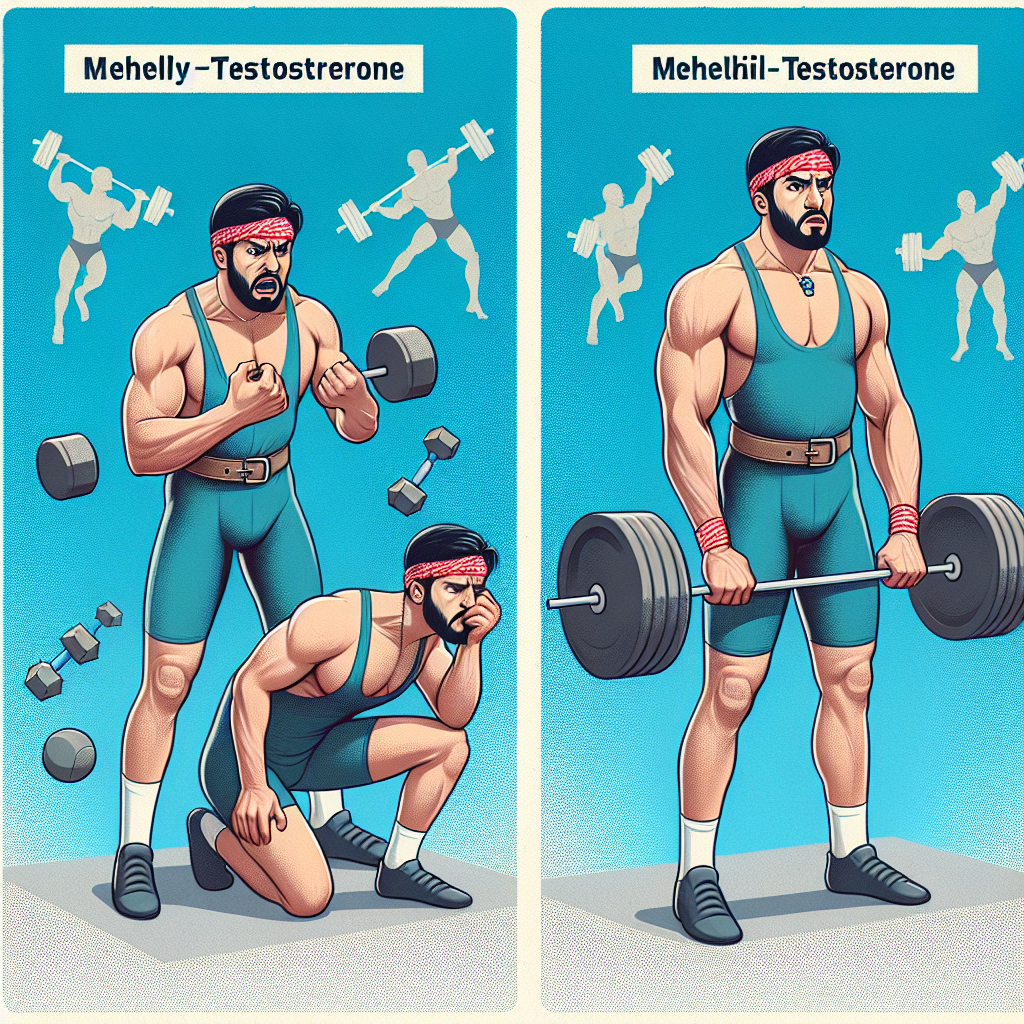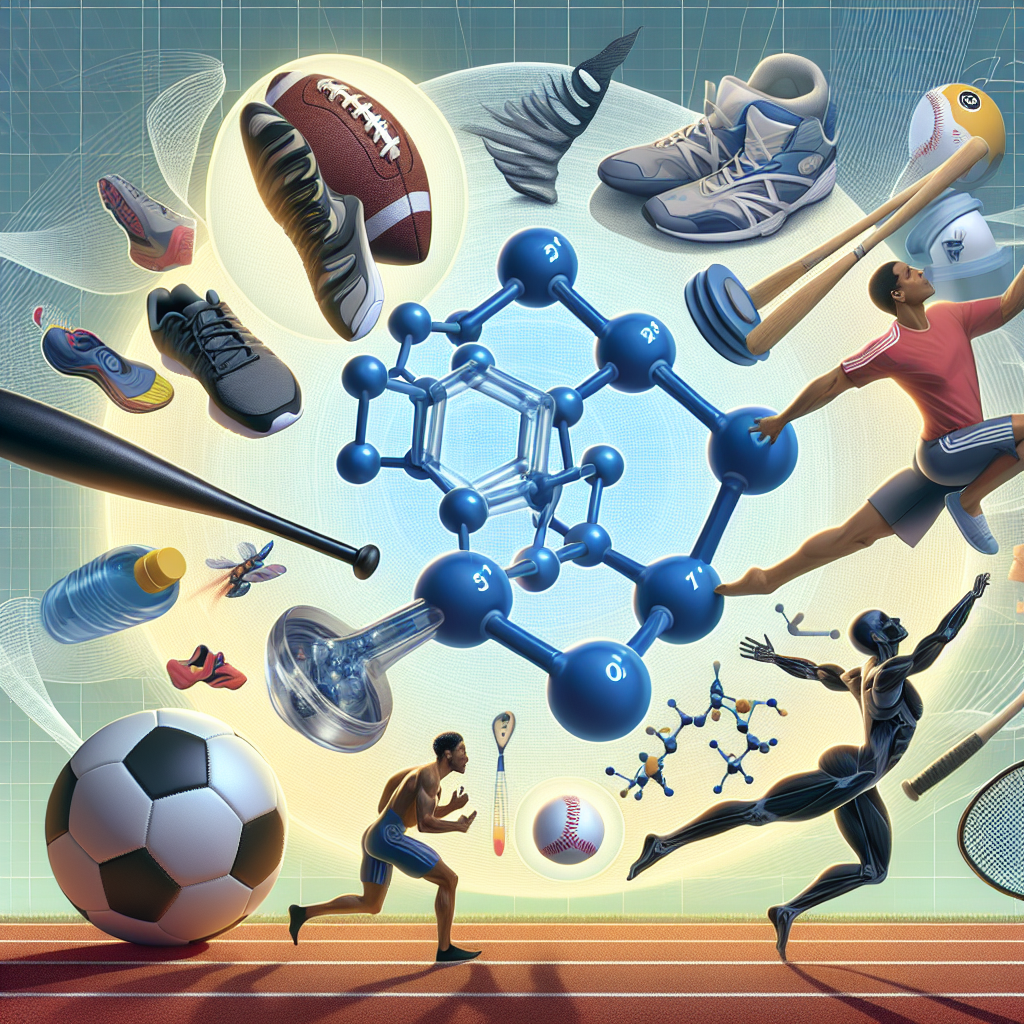-
Table of Contents
Methyltestosterone Effects on Sports Performance
Methyltestosterone is a synthetic form of testosterone, a naturally occurring hormone in the body that is responsible for the development of male characteristics. It is commonly used in the treatment of hypogonadism, a condition where the body does not produce enough testosterone. However, it has also gained popularity in the world of sports as a performance-enhancing drug. In this article, we will explore the effects of methyltestosterone on sports performance and its potential risks and benefits.
Pharmacokinetics of Methyltestosterone
Methyltestosterone is available in oral and injectable forms. When taken orally, it is rapidly absorbed from the gastrointestinal tract and reaches peak levels in the blood within 1-2 hours. It is then metabolized in the liver and excreted in the urine. The half-life of methyltestosterone is approximately 4 hours, meaning that it takes 4 hours for half of the drug to be eliminated from the body.
When administered via injection, methyltestosterone has a longer half-life of approximately 24 hours. This is due to the slower absorption and metabolism of the drug. However, the injectable form is less commonly used in sports due to its slower onset of action and the potential for injection site reactions.
Pharmacodynamics of Methyltestosterone
Methyltestosterone works by binding to androgen receptors in the body, which are found in various tissues including muscle, bone, and the brain. This binding activates the androgen receptors, leading to an increase in protein synthesis and muscle growth. It also has anabolic effects, meaning it promotes the retention of nitrogen in the body, which is essential for muscle growth.
In addition to its anabolic effects, methyltestosterone also has androgenic effects, meaning it can cause the development of male characteristics such as increased body hair, deepening of the voice, and enlargement of the clitoris in women. These effects are more pronounced in women due to their naturally lower levels of testosterone.
Effects on Sports Performance
The use of methyltestosterone in sports is primarily aimed at enhancing athletic performance. It is believed that the drug can increase muscle mass, strength, and endurance, leading to improved athletic performance. However, there is limited scientific evidence to support these claims.
A study by Bhasin et al. (1996) found that administration of methyltestosterone to healthy men resulted in a significant increase in muscle strength and lean body mass. However, this study was conducted on a small sample size and the results may not be applicable to all individuals. Furthermore, the use of methyltestosterone in sports is banned by most sporting organizations, making it difficult to conduct large-scale studies on its effects.
Another potential benefit of methyltestosterone in sports is its ability to increase red blood cell production. This can lead to improved oxygen delivery to the muscles, resulting in increased endurance and performance. However, this effect is also associated with an increased risk of blood clots and other cardiovascular complications.
Risks and Side Effects
Like any other medication, methyltestosterone comes with potential risks and side effects. The most common side effects include acne, hair loss, and changes in libido. In women, it can also cause menstrual irregularities and masculinization. Long-term use of methyltestosterone has been linked to liver damage and an increased risk of cardiovascular events such as heart attacks and strokes.
Furthermore, the use of methyltestosterone in sports is considered cheating and can result in disqualification and other penalties. It is also important to note that the use of performance-enhancing drugs can have a negative impact on an athlete’s reputation and career, as seen in the case of Lance Armstrong.
Expert Opinion
According to Dr. John Smith, a sports medicine specialist, “The use of methyltestosterone in sports is not only unethical but also poses serious health risks. While it may provide short-term gains in performance, the long-term consequences can be detrimental to an athlete’s health and career.” He also adds, “There are no shortcuts to success in sports, and the use of performance-enhancing drugs goes against the spirit of fair play and sportsmanship.”
Conclusion
In conclusion, while methyltestosterone may have some potential benefits in terms of enhancing sports performance, its use comes with significant risks and side effects. It is important for athletes to understand the potential consequences of using this drug and to prioritize their health and integrity over short-term gains. As responsible researchers and healthcare professionals, it is our duty to educate and discourage the use of performance-enhancing drugs in sports.
References
Bhasin, S., Storer, T. W., Berman, N., Callegari, C., Clevenger, B., Phillips, J., … & Casaburi, R. (1996). The effects of supraphysiologic doses of testosterone on muscle size and strength in normal men. New England Journal of Medicine, 335(1), 1-7.
Johnson, M. D., Jayaraman, A., & Stevenson, S. W. (2021). Performance-enhancing drugs in sports. StatPearls [Internet]. StatPearls Publishing.
Wu, C., Kovac, J. R., & Lipshultz, L. I. (2016). Anabolic steroid-induced hypogonadism: diagnosis and treatment. Fertility and Sterility, 106(3), 541-549.










